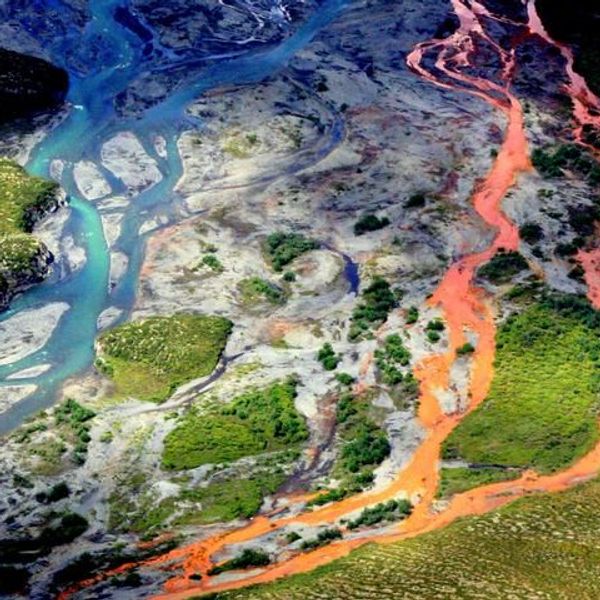The litany of extreme weather events this year and the mounting discoveries supplied by climate scientists have made 2012 a year in which the realities of a warmer planet make ignoring the impacts of human caused climate change no longer possible.
Nearly routine record-breaking heat waves; historic droughts and massive flooding destroyed croplands; fierce storms fueled 'surges' that destroyed homes and lives throughout North America; a late season typhoon wracked an island nation, killing nearly 1500; and the list goes on.
Even as author and activist Rebecca Solnit writes that 2012 has already "put the [climate] crisis in perspective," the news keeps coming with just published research showing that the very coldest corners of our planet are the regions that are heating up the quickest, with dramatic consequences for sea-level rise.
A study released Sunday by the journal Nature Geoscience reports that average annual temperatures in West Antarctica have risen 4.3 degrees Fahrenheit since the 1950s, one of the fastest gains on the planet.
The readings, taken at the Byrd research station in a remote region of Antarctica found that temperatures rising roughly twice as fast as scientists previously predicted for this region and three times the worldwide global warming average, making central West Antarctica one of the fastest-warming regions on earth.
"The surprises keep coming," said Andrew J. Monaghan, a scientist at the National Center for Atmospheric Research in Boulder, Colo., who took part in the study. "When you see this type of warming, I think it's alarming."
The report examined statistically significant warming during the austral summer, particularly during peak melting months December and January. It found that a continual rise in summer temperatures could lead to "more frequent and extensive episodes of surface melting of the West Antarctic Ice Sheet."
The New York Times describes the findings as "ominous" given that the "huge ice sheet there may be vulnerable to long-term collapse, with potentially drastic effects on sea levels." They write:
A potential collapse of the West Antarctic ice sheet is one of the long-term hazards that have led experts to worry about global warming. The base of the ice sheet sits below sea level, in a configuration that makes it especially vulnerable. Scientists say a breakup of the ice sheet, over a period that would presumably last at least several hundred years, could raise global sea levels by 10 feet, possibly more.
Adding to the study, Reuters reports:
Several ice shelves - thick ice floating on the ocean and linked to land - have collapsed around the Antarctic Peninsula [which snakes up towards South America] in recent years. Once ice shelves break up, glaciers pent up behind them can slide faster into the sea, raising water levels.
"The stakes would be much higher if a similar event occurred to an ice shelf restraining one of the enormous West Antarctic ice sheet glaciers," said Andrew Monaghan, a co-author at the U.S. National Center for Atmospheric Research.
Climate experts predict that sea levels will rise by between 7 and 24 inches this century, with significant increases if the thawing of Greenland and Antarctica accelerates. West Antarctica now contributes about 0.3 mm a year to sea level rise.
Low-lying and island nations are especially vulnerable to sea level rise, as are coastal cities such as New York, which we saw tested during this fall's Superstorm Sandy.
According to a poll in the Associated Press, "Four out of every five Americans said climate change will be a serious problem for the United States if nothing is done about it."
And Rebecca Solnit, tying the climates events to the response generated among the public, suggests that people may be finally be coming around to this new reality.
"That widespread belief suggests that potentially broad support now exists and may be growing for a movement that makes climate change -- the broiling of the Earth -- central, urgent, and everybody's business."


